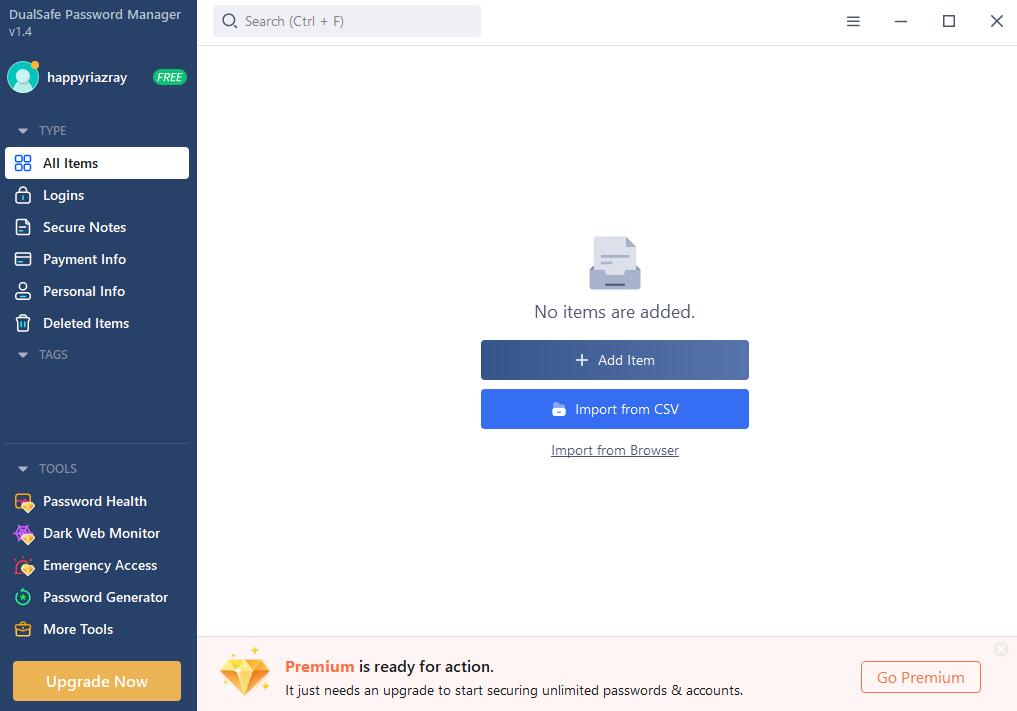SafeInCloud 24.14.1 freeware
SafeInCloud, developed by the Safe In Cloud Team, is a robust password manager designed to simplify and secure your digital life. It offers seamless synchronization across devices via cloud services, ensuring your data is always up-to-date. With its intuitive interface, AES-256 encryption, and autofill capabilities, SafeInCloud provides both novice and advanced users with a reliable solution for managing passwords and sensitive information effortlessly. ...
| Author | Safe In Cloud Team |
| Released | 2024-10-29 |
| Filesize | 11.10 MB |
| Downloads | 753 |
| OS | Windows 11, Windows 10 32/64 bit, Windows 8 32/64 bit, Windows 7 32/64 bit |
| Installation | Instal And Uninstall |
| Keywords | password manager, cloud synchronization, password vault, password, password, credentials, credentials |
| Users' rating (37 rating) |
SafeInCloud Free Download - we do not host any SafeInCloud torrent files or links of SafeInCloud on rapidshare.com, depositfiles.com, megaupload.com etc. All SafeInCloud download links are direct SafeInCloud download from publisher site or their selected mirrors.
| 24.14.1 | Oct 29, 2024 | New Release | Cloud sync: Dropbox API Version 2 (requires re-authentication) Donate option in the Help menu Bug fixes |
| 24.10.1 | Oct 20, 2024 | New Release | Cloud sync: Dropbox API Version 2 (requires re-authentication) Donate option in the Help menu Bug fixes |
| 24.10.0 | Aug 10, 2024 | New Release | Cloud sync: Dropbox API Version 2 (requires re-authentication) Donate option in the Help menu Bug fixes |






